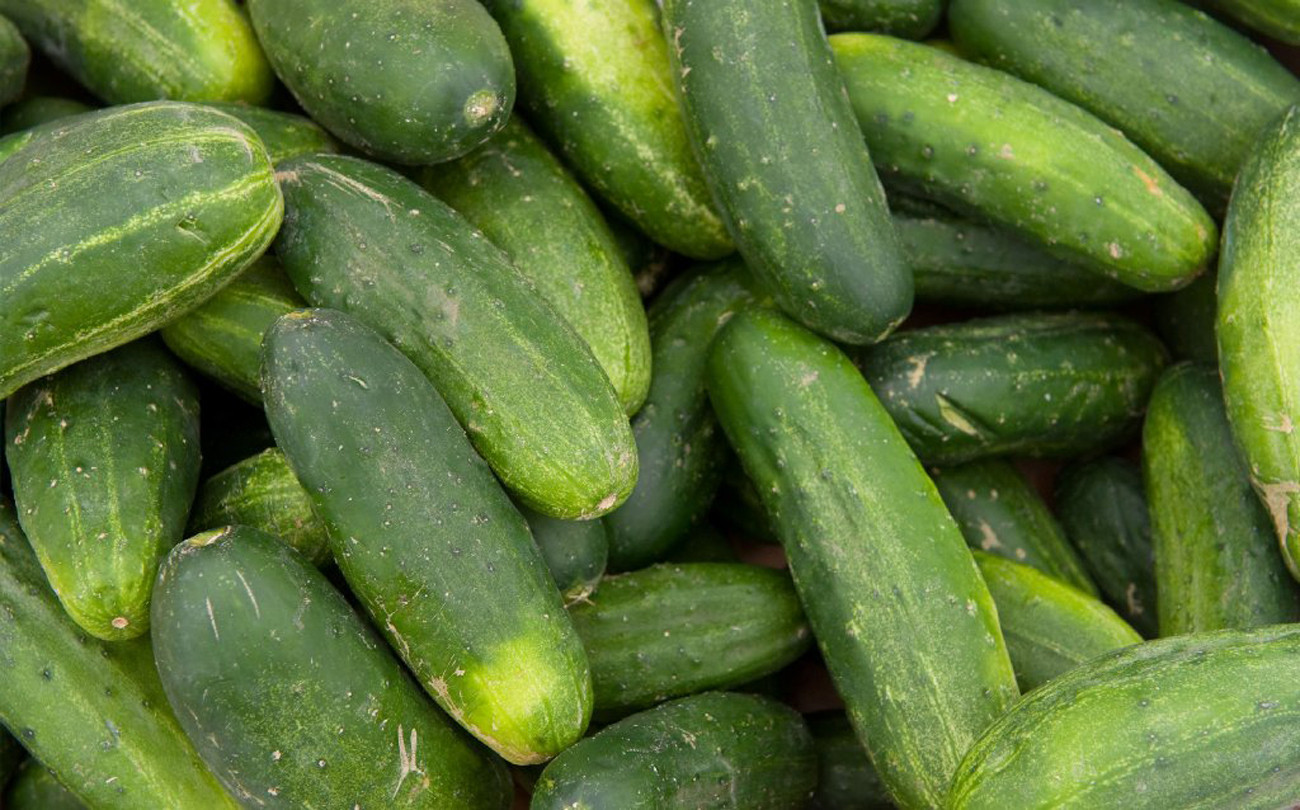
The cucumber is a member of the botanical family Cucurbitaceae, along with honeydew, cantaloupe, and watermelon. Made up of 95 percent water, cucumbers are naturally low in calories, fat, cholesterol, and sodium. Their high water content helps ward off dehydration and combat the heat while their refreshing and mild taste appeals to even the pickiest eaters.

Cucumbers are predominantly made of water. Some people use cucumbers to soothe sunburn. Early research shows that a compound found in cucumbers might help fight cancer. Cucumbers contain lignan, which may help fight cardiovascular disease. Cucumber is a versatile foodstuff and can be added to a variety of dishes

Consuming fruits and vegetables of all kinds has long been associated with a reduced risk of many adverse health conditions.
Many studies have suggested that increasing consumption of plant foods like cucumber decreases the risk of obesity, diabetes, heart disease, and mortality while promoting a healthy complexion, increased energy, and overall lower weight.
1) Hydration
Made mostly of water and full of important electrolytes, cucumber is a perfect food to have on hand during the hot summer months to prevent dehydration. Adding cucumber to water is a great way to increase water consumption as well.
2) Skin
When used topically, cucumber has a cooling and soothing effect that decreases swelling, irritation, and inflammation. Cucumber slices can be placed on the eyes to decrease morning puffiness or placed on the skin to alleviate and treat sunburn.
3) Bone health
Low intake of vitamin K has been associated with a higher risk for bone fracture. Adequate vitamin K consumption can be achieved by eating a proper intake of fruits and vegetables (one cup of cucumber provides 11 percent of your daily needs) and is important for improving calcium absorption which is essential for optimal bone health.
4) Cancer
Cucumbers contain high levels of nutrients known as cucurbitacins, which may have anticancer properties. These properties may prevent cancer cells from proliferating and surviving. Cucumbers contain cucurbitacins A, B, C, D, and E.
Though there are no current anti-cancer therapies that utilize cucurbitacins, there is some preliminary laboratory research that has produced promising results.
Health Benefits
According to the USDA National Nutrient Database, 1 cup of raw sliced cucumber with peel (approximately 119 grams) contains:
115 grams of water
16 calories
0.8 grams of protein
0.2 grams of fat
2.9 grams of carbohydrate (including 0.9 grams of fiber and 1.8 grams of sugar)
One cup of cucumber provides the following percentage of your recommended daily allowance:
11 percent of vitaminK
4 percent of vitaminC
4 percent of magnesium
4 percent of potassium
4 percent of manganese
2 percent of Vitamin A
2 percent of thiamin
2 percent of riboflavin
2 percent of B6
2 percent of folate
2 percent of pantothenic acid
2 percent of calcium
2 percent of iron
2 percent of phosphorus
2 percent of zinc
2 percent of copper
Cucumbers also contain lignans, which research has shown may decrease the risk of cardiovascular disease as well as several types of cancer.
Cucumbers are high on the pesticide residue list, so buy organic ones to ensure a lower risk of pesticide exposure. If you can’t afford organic, don’t fret; the nutritional benefit of eating conventionally grown (non-organic) produce far outweighs the risk of not eating produce at all.
Note that it is the total diet or overall eating pattern that is most important in disease prevention and achieving good health so it is better to eat a diet with a variety than to concentrate on individual foods as the key to good health.
By Paul Blessing E & Edited by Lydia













0 comments:
Post a Comment